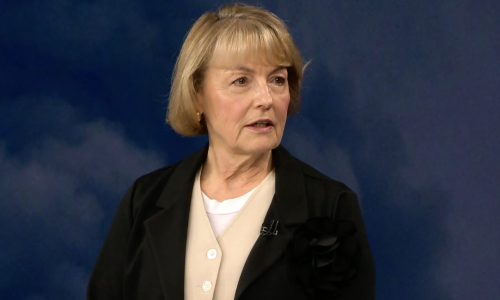Slovenian Foreign Minister Karl Erjavec has said that his country wants to ratify Croatia's accession treaty with the European Union as soon as possible, however, there is still "the unsolved entanglement" regarding deposits which the Croatians used to have in the now defunct Ljubljanska Banka and this problem should be settled.
Erjavec was quoted by the Slovenian news agency STA as saying on Thursday that he and his host in Berlin, German Foreign Minister Guido Westerwelle, on Wednesday discussed the developments in the Balkans and Croatia's accession to the EU.
At the Berlin talks the Slovenian minister stated that Slovenia wanted to ratify the Croatia-EU treaty as soon as possible, but that there was the unsolved entanglement regarding Ljubljanska Banka customers in Croatia.
"We in Slovenia believe that the entanglement would be solved in a sensible manner and in accordance with the commitments Croatia has undertaken, which means that the issue should be dealt with within the negotiations on the succession (to the former Socialist Federal Republic of Yugoslavia)," Erjavec said.
Slovenia insists that the issue of Ljubljanska Banka customers with their residence outside Slovenia upon the SFRY's break-up is tied with the takeover of guarantees for the deposits and saving and that those guarantees should be distributed according to the territorial principle which means that the newly-established countries had to take over guarantees for deposits in the Ljubljanska Banka's branches operating in them, regardless of the fact that the bank's headquarters had been in Slovenia.
During their recent meeting in Maribor, Slovenian and Croatian Prime Ministers Janez Jansa and Zoran Milanovic said that the reopened issue of the Ljubljanska bank did not undermine the good bilateral relations, and that the current governments in the two countries would abide by the obligations taken over by their previous governments.
Croatian Foreign and European Affairs Minister Vesna Pusic said recently she did not expect problems with the ratification of Croatia's Treaty of Accession with the EU in Slovenia, over the unresolved issue of Ljubljanska Banka.
"I don't see how this could jeopardise the ratification in Slovenia. Certainly, there are some outstanding issues and neighbours will always have them. We have to be ready and able to resolve those issues -- the issues we have today and those we will have in the future. For this concrete issue - Ljubljanska Banka - we need to find an appropriate solution, but this has nothing to do with the ratification and Croatia's readiness to join the bloc. There is no doubt that we are ready to talk about solving this problem," Pusic said.
The Croatian minister had also recently stated that Croatia had not reopened the Ljubljanska Banka issue, but that the issue was reopened by Slovenia, assessing as "inconceivable" the possibility that this unresolved issue between the two neighbours may bring into question the ratification of Croatia's Accession Treaty with the EU in the Slovenian Parliament.




































